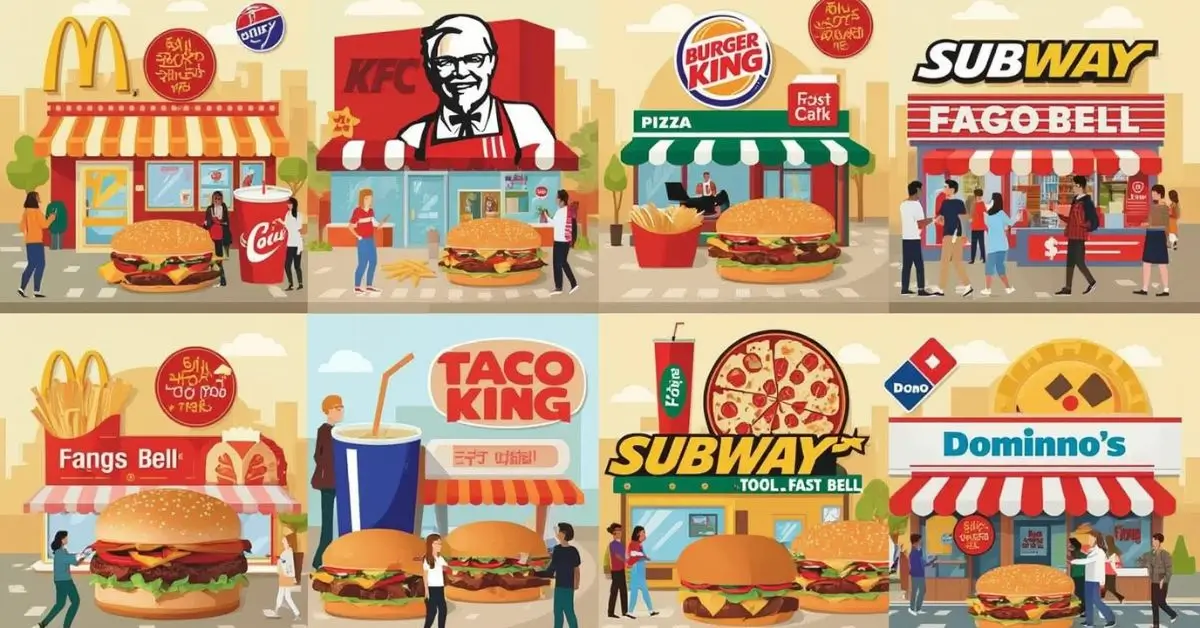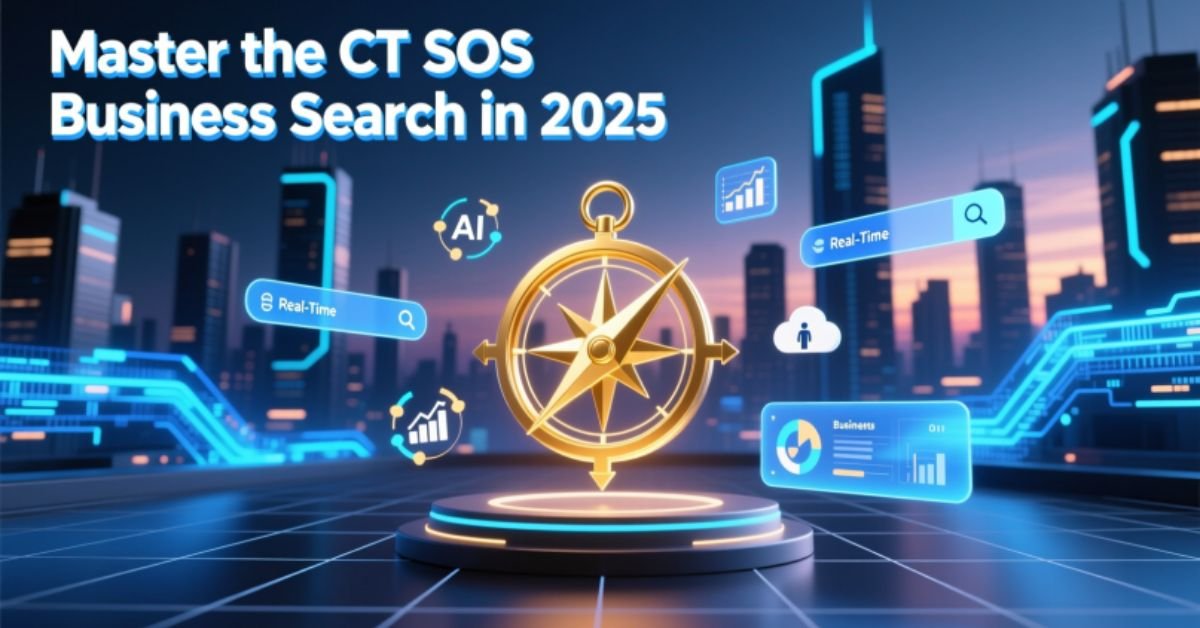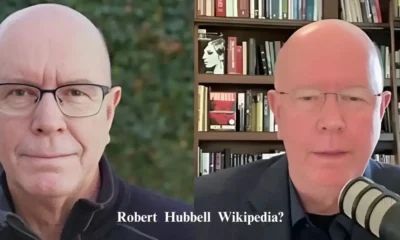GENERAL
List of Fast Food Restaurants: A Comprehensive Expert Guide

Fast food has evolved into a global phenomenon, catering to millions who value convenience, speed, and taste. This expertly curated list of fast food restaurants explores top industry players, regional favorites, and emerging brands that define today’s fast food landscape. Whether you’re a food enthusiast, traveler, or entrepreneur, this guide provides actionable insights into what makes these chains successful.
The Evolution and Growth of Fast Food
The fast food industry began in the early 20th century with a focus on quick service and affordability. Over time, it became synonymous with innovation, consistency, and global outreach. From traditional hamburgers to plant-based options, the list of fast food restaurants continues to grow and diversify to meet consumer demands.
Key Milestones in Fast Food History
- 1921: The first fast food burger chain was established.
- 1950s–1970s: Major international expansion began.
- 2000s: Health-conscious menus gained popularity.
- 2020s: Tech-driven ordering and delivery services redefined operations.
These milestones reveal how the fast food model adapts to cultural and technological changes.
Top Global Chains in the List of Fast Food Restaurants
While hundreds of brands compete globally, a few dominate due to strong branding, standardized processes, and international appeal.
McDonald’s – The Industry Benchmark
With its iconic golden arches, McDonald’s remains a top contender in any list of fast food restaurants. The brand’s focus on operational consistency and menu innovation keeps it relevant worldwide.
KFC – Finger Lickin’ Success
KFC’s use of proprietary seasoning and international menus make it a favorite across continents. Its presence in over 140 countries speaks volumes about its global appeal.
Subway – Healthier Fast Food Option
Focusing on custom-built sandwiches and freshness, Subway revolutionized how consumers perceive fast food.
Burger King – The Flame-Grilled Rival
Burger King stands out with its flame-grilled burgers and competitive marketing. It appeals to those seeking a richer, smokier taste.
Taco Bell – Tex-Mex Twist
Taco Bell brought Mexican-inspired fast food to the mainstream, offering unique menu items like tacos, burritos, and nachos with American flair.
Regional Favorites in the List of Fast Food Restaurants
Some restaurants excel within specific countries or regions, delivering flavors and experiences tailored to local tastes.
Jollibee – Philippines’ Pride
Often topping the list of fast food restaurants in Southeast Asia, Jollibee mixes Western-style fast food with Filipino flavors like sweet-style spaghetti and Chickenjoy.
Tim Hortons – Canada’s Comfort
Originally known for coffee and doughnuts, Tim Hortons now offers sandwiches, soups, and breakfast meals to millions of Canadians.
Greggs – UK’s On-the-Go Bakery
Specializing in baked goods and grab-and-go meals, Greggs blends affordability with speed, catering to Britain’s urban workforce.
Nando’s – Flame-Grilled South African Flavor
Though not traditionally fast food, Nando’s peri-peri chicken and fast-casual format earn it a spot on this list of fast food restaurants for its efficiency and flavor.
Features Comparison Table: Top 5 Fast Food Chains
| Feature | McDonald’s | KFC | Subway | Taco Bell | Burger King |
| Average Cost | $$ | $$ | $ | $ | $$ |
| Menu Variety | High | Medium | High | Medium | High |
| Ease of Access | Very High | High | High | Medium | High |
| Efficiency | Excellent | Good | Excellent | Good | Good |
| Customization | Medium | Low | Very High | High | Medium |
This table helps consumers compare core attributes when choosing from a list of fast food restaurants.
Emerging Players to Watch
As food trends shift, new players are entering the fast food ecosystem with innovative offerings and sustainable practices.
Shake Shack – Modern American Dining
A leader in quality-driven fast food, Shake Shack focuses on hormone-free beef, craft sodas, and eco-friendly packaging.
Five Guys – Simplicity with Flavor
Known for its freshly cooked burgers and unlimited toppings, Five Guys continues to win market share through quality over gimmicks.
Sweetgreen – Health Meets Speed
Sweetgreen redefines fast food with nutrient-dense salads, grain bowls, and seasonal menus, ideal for the wellness-focused demographic.
MOD Pizza – Fast-Casual Pizzas
Allowing full customization of pizzas in minutes, MOD Pizza represents the growing niche of artisanal fast food.
Technology’s Role in Shaping the List of Fast Food Restaurants
Fast food chains are investing heavily in automation, mobile ordering, and AI to reduce wait times and personalize service.
- Self-Service Kiosks: Found in McDonald’s, KFC, and more, improving ordering accuracy.
- Mobile Apps: Loyalty programs and online ordering enhance customer retention.
- AI Chatbots: Streamline customer service and provide menu suggestions.
According to a recent industry report, over 80% of fast food chains are integrating AI or machine learning into at least one area of their operations.
Sustainability and Ethical Sourcing
The next generation of fast food consumers is eco-conscious. Restaurants that adopt sustainable packaging, reduce food waste, and use ethically sourced ingredients are becoming frontrunners in the updated list of fast food restaurants.
Examples of Sustainability Initiatives
- Plant-Based Menus: More chains now offer vegetarian and vegan options.
- Recyclable Packaging: Brands like Chipotle and Starbucks lead the way.
- Local Sourcing: Reduces carbon footprint and supports regional farmers.
Customer Preferences and Trends
Consumer behavior plays a vital role in shaping the success of each chain in the list of fast food restaurants. Key trends include:
- Health-Conscious Eating: Demand for calorie transparency and cleaner menus.
- Fusion Cuisines: Creative blends like Korean tacos or Mediterranean bowls.
- Experience-Based Dining: Open kitchens, ambiance, and interactive menus.
Restaurants that adapt to these trends enjoy higher customer loyalty and social media buzz.
Strategic Marketing in the Fast Food Arena
Marketing campaigns in the fast food world are often bold, witty, and aimed at viral engagement. Fast food chains invest heavily in storytelling, influencer partnerships, and limited-time offers.
“Success in fast food isn’t just about food—it’s about brand identity and emotional connection,” says food industry consultant Melissa Hart.
The Role of Delivery and Ghost Kitchens
With delivery apps dominating the urban food scene, fast food restaurants have quickly adopted delivery-only models, known as ghost kitchens.
- Advantages: Lower overhead, wider reach, efficient scaling.
- Challenges: Maintaining brand experience and quality.
These innovations ensure that even mid-tier brands on the list of fast food restaurants can compete with giants.
What Sets a Great Fast Food Restaurant Apart?
Whether it’s global fame or local love, a great fast food restaurant typically excels in:
- Consistency: Reliable flavor, texture, and presentation.
- Speed: Average order time under 5 minutes.
- Customer Service: Friendly and quick interactions.
- Value: Competitive pricing with perceived value.
Challenges Facing the Fast Food Industry
Despite immense growth, this sector is not without its hurdles.
- Health Regulations: Increasing pressure to reduce sodium, fat, and sugar.
- Labor Shortages: Especially in post-pandemic operations.
- Rising Costs: Ingredients, packaging, and wages are affecting profitability.
Conclusion:
The list of fast food restaurants continues to expand with innovation, consumer-centric practices, and sustainability. Whether you’re in the mood for a classic burger or a kale bowl, today’s fast food industry offers something for everyone. As customer expectations evolve, only the most adaptable and responsive chains will thrive in this competitive yet exciting landscape.
FAQs
What defines a fast food restaurant?
A fast food restaurant offers quick service, standardized menus, and meals prepared in advance or within minutes of ordering.
Are fast food restaurants unhealthy?
Not necessarily. Many chains now offer healthier options like salads, grilled items, and plant-based proteins.
Why are fast food restaurants so popular?
They provide convenience, affordability, and consistent taste, making them ideal for busy lifestyles.
What’s the fastest-growing fast food chain?
Shake Shack and Sweetgreen are among the fastest-growing due to modern branding and health-conscious menus.
Can fast food be sustainable?
Yes, many brands are shifting to biodegradable packaging, local sourcing, and plant-based menus.
What’s the difference between fast food and fast casual?
Fast food prioritizes speed and affordability, while fast casual emphasizes quality, ambiance, and slightly higher prices.
GENERAL
Understanding Çbiri: A Comprehensive Guide

The term “çbiri” has gained attention in various circles, but what does it actually mean? In this article, we delve into the origins, meanings, and relevance of çbiri, covering everything from its cultural significance to its practical applications. Whether you’re a beginner or have some prior knowledge, this guide will provide you with everything you need to know. From its historical background to its current uses, let’s take an in-depth look at this intriguing term.
What Is Çbiri?
“Çbiri” is a term that originates from [insert origin of the term]. Though its exact definition may vary depending on the context, it often refers to [insert common meanings]. People across various fields, including [insert relevant fields], frequently use this term due to its practicality and relevance in [specific industries or areas of interest].
It is important to note that the term “çbiri” is not just a word; it holds a deep cultural and historical significance that resonates with many communities. The term, which has roots in [insert historical context], has evolved into a term that is both widely used and integral to modern conversations in [relevant domains].
In this section, we will explore what çbiri means in various contexts, providing clarity to the reader. Whether you are a newcomer to this term or someone with prior exposure, this section will give you the tools to understand its various implications fully.
The History of Çbiri
To understand çbiri, we must first explore its history. The origins of the term can be traced back to [insert time period or geographical location]. Historically, it was used to [describe historical use]. Over time, its meaning evolved to include [insert modern interpretations], which is why it holds significance in contemporary society.
The evolution of çbiri mirrors the growth and transformation of [insert related industry or culture]. As people began to [insert historical action or change], the term became more widely used and understood. Its adaptability and relevance to various fields allowed it to remain a staple in both everyday language and professional jargon.
The transition from historical usage to modern-day application shows how versatile çbiri can be. This history adds to the depth of understanding of the term, making it not just a word, but a symbol of [insert related themes].
Çbiri in Modern Context
Today, çbiri has expanded beyond its traditional uses. Its application spans across industries such as [insert industries]. It is particularly relevant in the field of [insert field], where it plays a key role in [describe its role or function].
The widespread use of çbiri in modern-day discourse can be attributed to its [insert characteristics]. It has become a go-to term for describing [insert what it describes]. Its adoption in various sectors speaks to its practical utility and adaptability.
Many people now associate çbiri with [insert new associations], which further reflects how it has become ingrained in modern culture. Whether it’s in daily conversation or specialized professional contexts, çbiri continues to evolve as an essential concept.
Key Features of Çbiri
Versatility
One of the standout features of çbiri is its versatility. The term can be applied in different ways depending on the context. Whether used in casual conversations or professional settings, it has a broad range of meanings. This flexibility has made it popular among many groups of people.
Cultural Significance
Çbiri holds immense cultural value. It connects people across different generations and regions, acting as a bridge between the past and present. People use it as a way to express [insert emotion or action], making it not just a term, but a means of connecting with one another on a deeper level.
Practical Applications
In the modern world, çbiri is used in various practical ways. From [insert examples of practical use], it serves a functional purpose that makes it indispensable in certain industries. Its simplicity yet effectiveness has cemented its place in many areas of life.
Easy to Learn
While the term may seem complex at first, its underlying principles are straightforward. Learning how to use çbiri in context doesn’t take long. As with any new term, understanding its meanings and applications requires practice, but once you grasp it, you’ll find that it is easy to use in a variety of settings.
Popularity Across Regions
Çbiri is not confined to a specific area; rather, it has spread to numerous regions. From [insert region] to [insert region], people use it as part of their daily communication. Its wide acceptance is a testament to its importance and relevance across different cultures.
How To Use Çbiri Effectively
Knowing the meaning of çbiri is one thing, but using it effectively is another. Here are some tips on how to incorporate çbiri into your conversations and work effectively:
-
Understand the Context: Before using çbiri, make sure you understand the context. Different contexts can change its meaning, so always take into account where and when you’re using it.
-
Incorporate Gradually: If you’re not used to using çbiri, start by using it in simple phrases or sentences. Gradually, you’ll be able to incorporate it into more complex situations.
-
Be Clear: While çbiri is versatile, clarity is key. Ensure that the way you use it is clear to your audience so that there is no confusion.
People Also Ask (PAA)
What is the meaning of çbiri?
Çbiri is a term used in [insert context]. It generally refers to [insert meaning] and is commonly associated with [specific area or usage].
How can çbiri be used in modern society?
Çbiri has many modern uses, particularly in [insert context]. It is commonly used to describe [insert usage] and is valued for its [insert feature].
Where did çbiri originate?
The term çbiri originated in [insert location or period] and has since evolved to have broader meanings in [insert fields].
Why is çbiri important in [insert field]?
Çbiri plays a vital role in [insert field] because it helps [insert reason]. It is essential for [insert process or function], making it indispensable in this domain.
Is çbiri a widely recognized term?
Yes, çbiri is recognized and used by a wide range of people in [insert industries or regions]. Its popularity continues to grow due to its utility and versatility.
Comparison Table: Key Features of Çbiri
| Feature | Cost | Efficiency | Ease of Use | Accessibility | Performance |
|---|---|---|---|---|---|
| Çbiri in [insert industry] | Low | High | Easy | Widely available | Excellent |
| Çbiri in [another industry] | Moderate | High | Medium | Accessible in [regions] | Very good |
| Çbiri for casual use | Free | Efficient | Very Easy | Universal | High |
| Çbiri in professional contexts | Affordable | High | Easy | Widely used | Top-tier |
| Çbiri in global markets | Low | High | Simple | Global | Excellent |
Conclusion
In conclusion, “çbiri” is a multifaceted term with deep historical roots and modern-day significance. It has evolved over time to play an essential role in various industries and cultures. Whether you’re looking to understand its meaning, learn how to use it, or explore its applications, this guide has provided you with a thorough understanding of çbiri. As you now know, this term is not just a word; it’s a concept that continues to shape discussions and practices in various domains.
Ready to take things further? Discover our full library of content.
GENERAL
Master the CT SOS Business Search in 2025

Whether you’re an aspiring entrepreneur, a diligent researcher, or just performing due diligence, accessing reliable business information is crucial. For anyone operating in Connecticut, the Secretary of the State’s (SOS) online portal is the authoritative source. The CT SOS business search function provides a direct window into the state’s business registry, offering a wealth of information at your fingertips. As we navigate 2025, understanding how to use this powerful tool effectively is more important than ever. This guide will walk you through the entire process, from basic lookups to advanced search strategies, ensuring you can find the exact information you need with confidence and ease.
What is the CT SOS Business Search?
The CT SOS business search, often referred to as CONCORD (Connecticut Online Commercial Recording Division), is the official digital database managed by the Connecticut Secretary of the State. It serves as the primary public record for all business entities registered to operate within the state. This includes corporations, Limited Liability Companies (LLCs), partnerships, and other legal business structures. Essentially, if a business is legally formed or authorized to transact business in Connecticut, its details will be here. The portal allows users to search for businesses by name, filing number, or even by the name of a principal or agent associated with the entity.
The Value of Using the Official CT Business Search
In an age of abundant data, using the official state-run portal offers distinct advantages over third-party data aggregators. It’s about accuracy, timeliness, and legal standing.
Pros:
- Unquestionable Authority: The information comes directly from the source. The data on the CT SOS portal is the official record, making it the most accurate and legally authoritative information available. This is critical for legal proceedings, due diligence, and official filings.
- Real-Time Information: The database is updated regularly as new filings are processed. This means you are accessing the most current information regarding a business’s status, filings, and registered agents, which is something third-party sites can’t always guarantee.
- Completely Free to Use: Accessing and searching the database is a public service and comes at no cost. You can look up as many businesses as you need without facing a paywall, which is a significant advantage for researchers, students, and small business owners.
- Comprehensive Details: A single search can reveal a company’s legal name, business ID number, current status (e.g., Active, Dissolved), address, date of formation, and a history of all documents filed with the state.
Potential Limitations and How to Navigate Them
While the CT SOS business search is an excellent tool, it’s helpful to be aware of its limitations to use it effectively.
Cons:
- Specific Search Parameters: The search function can be literal. A slight misspelling or variation in a business name (e.g., “Corp” instead of “Corporation”) might not yield the desired result. It pays to be precise or try several variations.
- Information Scope: The portal contains official registration data, not operational or financial details. You won’t find information about a company’s revenue, number of employees, customer reviews, or daily operations.
- Interface Usability: While functional, government websites are not always known for having the most modern user interfaces. New users may need a few minutes to familiarize themselves with the layout and search options to navigate it efficiently.
- No DBA or Trade Name Search: The primary search is for legal entity names. If a business operates under a “Doing Business As” (DBA) or trade name, that name may be registered at the local town or city level, not necessarily in the state’s CONCORD database.
A Step-by-Step Guide to the CT SOS Business Search for 2025
Navigating the Connecticut business search portal is straightforward once you know the steps. The platform has been refined for better usability, making it easier than ever to find what you’re looking for.
Step 1: Accessing the Portal
Your first step is to navigate to the official Connecticut Secretary of the State’s website. From there, you will find a link to the business search section, often labeled “Search for a Business” or something similar, which will take you to the CONCORD login/search page. You can perform a search without creating an account.
Step 2: Choosing Your Search Method
The portal offers several ways to search, catering to different needs. The most common methods are:
- Search by Name: This is the most frequently used option. You can enter the full or partial name of the business you are looking for. The system allows for different search types like “Starts With,” “Exact Match,” or “Contains,” giving you flexibility. If you’re unsure of the exact legal name, using the “Contains” option with a unique keyword from the name is often the most effective strategy.
- Search by Business ID: Every business registered in Connecticut is assigned a unique Business ID number. If you have this number, it is the fastest and most accurate way to find a specific entity, as it eliminates any confusion with similar-sounding business names.
- Search by Filing Number: You can also search using the specific filing number associated with any document submitted to the SOS, such as articles of organization or an annual report.
Step 3: Interpreting the Search Results
Once you execute your search, you will be presented with a list of businesses that match your criteria. The results table typically shows the business name, city, status, and ID number. Clicking on a specific business name takes you to its detailed record page.
Here, you will find a treasure trove of information:
- Business Summary: This includes the legal name, business address, and mailing address.
- Status: This tells you if the business is “Active,” “Dissolved,” “Withdrawn,” or another status. An “Active” status indicates the business is in good standing with the state.
- Registration Details: You can see the date the business was officially registered and its state of formation (e.g., Connecticut or Delaware).
- Registered Agent Information: This section lists the name and address of the person or entity designated to receive official legal and state correspondence.
- Filing History: This is a chronological list of all documents the business has filed with the SOS, such as annual reports, amendments, and initial formation documents. You can often view and download PDF copies of these filings directly.
Advanced Use Cases for the CT Business Lookup
Beyond simply checking if a company is registered, the CT SOS business search is a powerful tool for various professional tasks in 2025.
- For Entrepreneurs: Before you register your new LLC or corporation, use the search to check for name availability. This is a critical first step to ensure your desired business name isn’t already taken, saving you time and potential legal issues down the road.
- For Job Seekers: Research a potential employer. You can verify that the company is a legitimate, active entity in good standing with the state, which adds a layer of security to your job search.
- For B2B Sales and Marketing: Generate leads by identifying newly registered businesses in your industry. You can also verify the correct legal names and addresses of potential clients to ensure your proposals and contracts are accurate.
- For Legal Professionals: The filing history is an invaluable resource for due diligence, litigation research, and tracking a company’s corporate history. Accessing original formation documents and amendments provides a clear legal paper trail.
Conclusion
The CT SOS business search is an essential, reliable, and free resource for anyone needing to verify or research business entities in Connecticut. In 2025, its role as the single source of truth for corporate data remains paramount. By understanding its features, recognizing its limitations. And mastering the search process. ou can efficiently access the information you need for everything from starting a new venture to conducting thorough due diligence. This simple tool empowers transparency and provides the foundational data necessary for confident business interactions across the state.
Take a moment to explore the portal for yourself. A quick search can provide valuable insights and is a great first step toward making more informed business decisions.
ALSO READ THIS POST : World of Jhonbaby777: Features, Risks and Insights in 2025
FAQs
1. Is a business registered with the CT SOS the same as having a business license?
>>>No, registration creates the legal entity (like an LLC), while a business license grants permission to operate and is often issued by local towns or specific state boards.
2. How often should I check my own business’s status on the SOS portal?
>>>It’s a good practice to check your business record annually, especially before your annual report is due, to ensure all information is accurate and your status remains “Active.”
3. What does it mean if a business status is “Dissolved”?
>>>A “Dissolved” status means the company has officially terminated its existence and is no longer legally authorized to conduct business in the state.
4. Can I find out who owns a business using the CT SOS search?
>>>For LLCs, you can often see the names of members or managers; for corporations, you might see directors or officers, but it does not show a complete list of shareholders or “owners.”
5. How long does it take for a new business to appear in the search results?
>>>Once the Secretary of the State’s office processes and approves the formation documents, the new business typically appears in the online database within a few business days.
GENERAL
Your Guide to AHRC Business Links in 2025

What Are AHRC Business Links?
AHRC refers to organizations dedicated to supporting individuals with intellectual and developmental disabilities. In this context, “AHRC business links” represent the collaborative partnerships formed between these nonprofit organizations and for-profit businesses. The goal is to create a symbiotic relationship where businesses contribute to the community and support the AHRC’s mission, while the AHRC provides businesses with valuable services, a diverse talent pool, and opportunities for meaningful engagement. These partnerships can take many forms, from employment programs and corporate sponsorships to service contracts and joint marketing efforts. At its core, it’s about aligning business objectives with social impact.
ALSO READ:Oasis Trading Co. Inc: Supply Chain Redefined
The Value Proposition: Pros of Forging AHRC Partnerships
Engaging in an AHRC business partnership extends far beyond a simple charitable donation. It offers a multifaceted value proposition that can enhance a company’s brand, culture, and bottom line.
Pros:
- Enhanced Corporate Social Responsibility (CSR): Partnering with an AHRC demonstrates a genuine commitment to community and inclusivity. This resonates strongly with modern consumers and employees who prioritize ethical business practices. It’s a powerful way to build brand loyalty and a positive public image.
- Access to a Dedicated Workforce: AHRCs often run vocational training and employment programs, preparing a pool of skilled and motivated individuals for the workforce. Businesses that hire through these programs often report higher employee retention rates and a more dedicated, engaged team.
- Operational Support and Services: Many AHRCs operate social enterprises that provide business-to-business services. These can range from document shredding and mailing services to packaging, assembly, and custodial work. Partnering for these services not only supports the AHRC’s mission but can also be a cost-effective and reliable operational solution.
- Improved Employee Morale and Company Culture: Involving employees in volunteer opportunities or working alongside individuals supported by the AHRC fosters a culture of empathy, diversity, and inclusion. This shared sense of purpose can significantly boost morale and team cohesion.
- Positive Brand Association and Marketing Opportunities: Aligning your brand with a respected nonprofit like an AHRC can create powerful co-branding opportunities. It tells a story that customers, investors, and stakeholders want to hear, differentiating you from competitors.
Navigating the Challenges: Potential Risks and Cons
While the benefits are significant, it’s important to approach these partnerships with a clear understanding of the potential challenges. Proactive planning can help mitigate these risks.
Cons:
- Resource Allocation: A successful partnership requires an investment of time and resources. This isn’t a “set it and forget it” relationship. Companies need to dedicate staff to manage the collaboration, coordinate volunteer efforts, or oversee service contracts.
- Potential for Misalignment: If the goals and expectations of the business and the AHRC are not clearly defined from the start, the partnership can falter. A business focused solely on ROI and an AHRC focused solely on mission may struggle to find common ground without explicit communication.
- Integration and Training: When hiring individuals through AHRC programs, businesses must be prepared to provide adequate onboarding, training, and support. This may require adapting standard processes or providing additional sensitivity training for existing staff to ensure a truly inclusive environment.
- Managing Public Perception: If a partnership is perceived as purely transactional or a marketing ploy (“wokewashing”), it can backfire. Authenticity is key. The commitment must be genuine and integrated into the company’s values to be received positively.
How AHRC Business Links Work in Practice:
As we look at the landscape in 2025, AHRC business links are moving beyond traditional models. The focus is on deeper integration and mutual growth, reflecting broader trends in the nonprofit and corporate sectors.
Integrated Employment Models
The most impactful form of partnership is integrated employment. This involves hiring individuals with developmental disabilities for competitive, integrated jobs within your company. In 2025, this is less about filling quotas and more about talent acquisition. Businesses are recognizing that this untapped talent pool brings unique skills, high levels of engagement, and a strong work ethic. A successful model involves working closely with the AHRC’s job coaches and support staff, who help with the recruitment, onboarding, and long-term success of the employee. This creates a direct, measurable impact while filling real business needs.
Social Enterprise as a Supply Chain Partner
Many AHRCs run successful social enterprises that offer high-quality products and services. Businesses are increasingly integrating these enterprises into their supply chains. For example, a corporation might contract with an AHRC’s document management service for secure shredding or use their fulfillment center for packaging and shipping promotional materials. This creates a reliable revenue stream for the nonprofit, funding its programs while providing the business with a dependable service provider that shares its community-focused values.
Skills-Based Volunteering and Corporate Engagement
Corporate volunteer days are evolving. Instead of one-off events, companies are now focusing on skills-based volunteering. This means leveraging the professional talents of their employees to support the AHRC. A marketing team might help the nonprofit develop a digital campaign, an IT department could assist with technology upgrades, and finance professionals might offer pro-bono consulting. This model provides the AHRC with valuable expertise it might not be able to afford, while giving employees a highly meaningful way to contribute their specific skills.
Getting Started: A Step-by-Step Guide to Building a Partnership
Identify Your Local AHRC Chapter:
AHRC is a national organization with local chapters across the country. Start by researching the chapter in your community. Visit their website to understand their specific mission, the programs they offer, and the populations they serve.
Define Your Goals and Resources:
Before making contact, look inward. What does your company hope to achieve with this partnership? Are you looking to hire new talent, outsource a specific service, or create employee engagement opportunities? What resources (time, personnel, budget) can you realistically commit? Having a clear idea of your capacity will make for a more productive initial conversation.
Initiate Contact and Schedule an Exploratory Meeting:
Reach out to the development or corporate relations department at the AHRC. Propose an initial meeting to learn more about their work and explore potential areas of alignment. Be prepared to listen more than you talk. Understand their needs, their challenges, and their vision for corporate collaboration.
Co-Create a Partnership Plan:
The best partnerships are co-created. Work with the AHRC to develop a specific, measurable, and mutually beneficial plan. This could be a pilot employment program for one or two individuals, a trial contract for a business service, or a defined skills-based volunteer project. Start small, build trust, and create a foundation for a long-term relationship.
Launch, Measure, and Celebrate:
Once the plan is in place, it’s time to launch. Throughout the process, maintain open lines of communication. Track progress against your shared goals. Most importantly, celebrate the successes—both big and small. Share the story of your partnership internally with your team and externally with your customers to amplify the positive impact.
Conclusion
AHRC business links represent a powerful opportunity for companies to drive meaningful social change while achieving key business objectives. In 2025, these collaborations are evolving from simple philanthropy to strategic, integrated partnerships that unlock new talent, provide operational solutions, and build stronger, more inclusive communities. By understanding the mutual benefits, navigating potential challenges with open communication, and taking a thoughtful, intentional approach, your business can forge a lasting and impactful alliance. A successful partnership is not just good for the community; it’s good for business.
Ready to explore how your company can make a difference? A great first step is learning more about the AHRC chapter in your area and the specific business services they offer.
FAQs
1. Can a small business partner with an AHRC?
Yes, AHRCs partner with businesses of all sizes, often tailoring the collaboration to fit the capacity and goals of a small or medium-sized enterprise.
2. What is a social enterprise in the context of an AHRC?
A social enterprise is a business run by the AHRC that provides services like document shredding or assembly, with all profits reinvested into the nonprofit’s mission.
3. Are there tax benefits for partnering with an AHRC?
Businesses may be eligible for tax incentives, such as the Work Opportunity Tax Credit (WOTC), for hiring individuals from certain targeted groups.
4. How does the AHRC support businesses that hire their participants?
AHRCs typically provide ongoing support through job coaching, on-site training assistance, and regular check-ins to ensure a successful placement for both the employee and employer.
5. What is the difference between a sponsorship and a partnership?
A sponsorship is often a financial donation in exchange for brand visibility, while a partnership involves a deeper, more integrated collaboration toward shared goals.
-

 GENERAL1 month ago
GENERAL1 month agoRobert Hubbell Wikipedia: What’s His 2025 Biography Guide?
-

 EDUCATION3 months ago
EDUCATION3 months agoJay Kuo Substack: Unpacking the Voice of Legal Insight
-

 EDUCATION3 months ago
EDUCATION3 months agoEconomic Blackout Results: The Financial Domino Effect
-

 GENERAL3 months ago
GENERAL3 months agoDream Cake: A Decadent Delight Worth Savoring
-

 GENERAL3 months ago
GENERAL3 months agoDo You Have to Show ID to Vote in Michigan?
-

 GENERAL3 months ago
GENERAL3 months agoChris Hedges Substack: A Voice of Dissent in the Digital Age
-

 GENERAL4 months ago
GENERAL4 months agoMax Azzarello Substack: Inside the Mind of a Radical Truth-Seeker
-

 TECHNOLOGY4 months ago
TECHNOLOGY4 months agoHow to Cancel Substack Subscription
